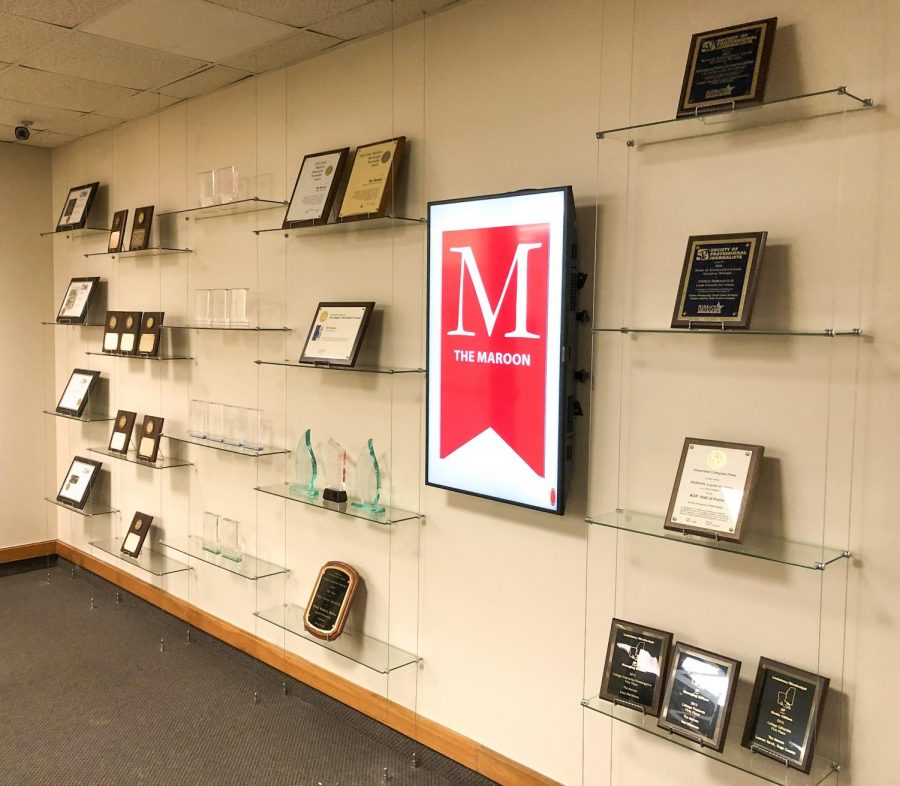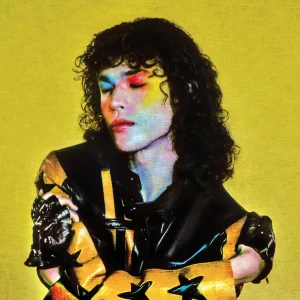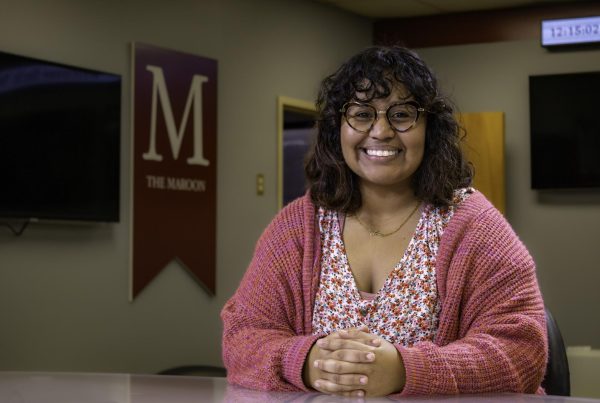Letter: Student media requires independence, not faculty influence
Rows of awards sit on display outside The Maroon office on Loyola’s campus April 26.
June 11, 2020
Editor:
I was saddened to read in the June 5 Maroon about the experience of Nia Porter, a Loyola 2015 graduate.
The article states that after Porter was elected the first black editor-in-chief of The Maroon, The Maroon failed to report this “because they said (Sonya) Duhé, (former director of the School of Mass Communications) and other faculty members advised it would be embarrassing to publicize how long it took the publication to elect a black leader.”
In the article, Porter and other recent graduates of Loyola discuss how this and other instances of racism affected them.
As a former editor-in-chief of The Maroon (Spring 1991), I am sickened that The Maroon would attempt to whitewash its history by failing to report on Porter’s achievement and its own past lack of diversity in the upper levels of leadership. I hope the current Maroon staff will consider doing so now.
Further, I am disturbed to learn that the director and faculty of the college are exercising such influence over editorial decision making. This was not the practice when I was a student. If students are being pressured by faculty and administration into not writing stories that are newsworthy, but embarrassing, Loyola is failing in its duty to teach students journalism.
“Journalism is printing what someone else does not want published; everything else is public relations.”
– George Orwell
Regards,
Elizabeth Davis
Class of 1992
Editor’s Note: Members of the university faculty currently have no influence over the editorial decisions, reporting, or publication of stories done by The Maroon.










